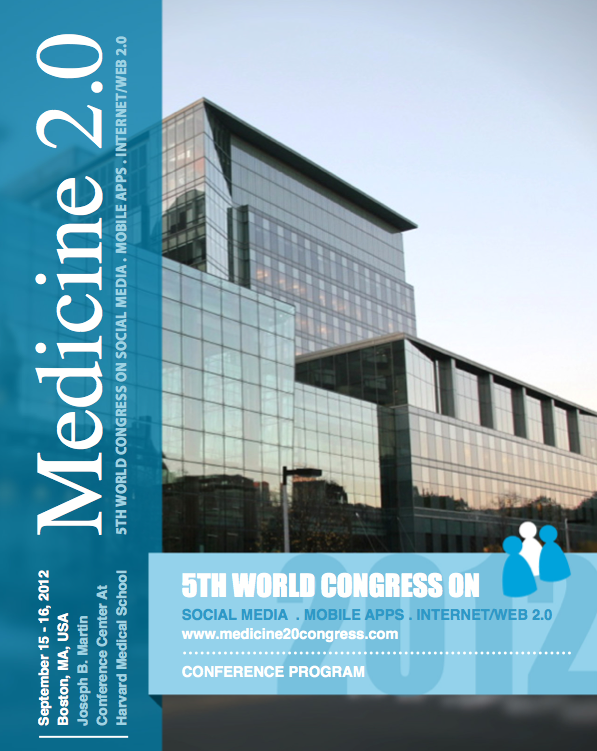Experientia researcher speaking at Harvard’s Medicine 2.0 conference

Experientia researcher Anna Wojnarowska spoke this Sunday at the Medicine 2.0 conference in Boston on her research on the influence of the hospital environment, communication devices – laptops, mobile phones – and the technologies involved in the curing process such as drips and cardiac devices – on patients’ experiences of hospitalization.
The yearly conference, which had over 500 attendees, focuses on social media, mobile apps, and internet/web 2.0 in health, medicine and biomedical research.
Anna’s talk, entitled Body Wholeness and Technological Struggles: How Patients and Staff Cope with the Reality of the Hospital, presented an ethnographic study of a cardiology institute in Warsaw with a focus on the way the digital technologies influence the dynamics between the doctors and patients
Background:
What interested me the most in the specificity of the hospital environment was the potential influence of digital technologies – such as mobile phones and laptops – on the dynamics between patients and doctors, mediated through medical treatment. I wanted to find out what role digital communication devices play in the balance of authority between doctors and patients and how using these tools expresses the personal needs of patients.Objective:
My research examines the influence of the hospital environment, communication devices – laptops, mobile phones – and the technologies involved in the curing process such as drips and cardiac devices – on patients’ experiences of hospitalization.Methods:
I conducted ethnographic research in a cardiological institute in Poland. Having negotiated access as an “ethnographic intern†to one of the clinics, I participated in the life of the hospital to the extent available to an outside observer, for a period of three weeks. I conducted interviews with eleven patients, two family members, seven members of the medical staff – doctors and nurses – and three members of the hospital’s administrative staff. Further, I engaged in extensive observation of the hospital environment.Results:
All of the patients whom I met during the research period were extensive users of mobile phones, but they were rarely equipped with their own laptops. Patients treated technology as an important conveyor of their private realities, lives that they did not necessarily want to include in their hospital routine. Patients approached hospitalization as a temporary period, which they did not want to integrate with their everyday lives. They protected their bodily integrity by negating their dependence on medical and communicational devices, not wishing to be perceived as ‘cyborgs’ (Haraway 1985) or ‘techno-social beings’ (Latour 1993). In order to separate themselves from their roles as ‘patients’, they exerted their agency on those technological aspects of the hospital reality, which were within their reach, such as medical screens and drips. Even though the doctors were very eager to share stories of how patients undermined their medical authority by browsing the internet, the patients themselves claimed that they do it only for their own sake, without wanting to disobey their doctors. The complexity of the treatments conducted in the clinic increased patients’ trust in the medical profession and decreased their motivation to look for alternative information online. Nonetheless, online sources do play an important role during the curing process, as an effective source of emotional support and personal comfort.Conclusions:
The hospital is an area where patients construct their personhoods in reference to the surrounding environment and where they foster their identities. Digital technologies became deeply embedded in the process of maintaining bodily integrity and tackling a new – and yet temporary – hospitalized reality. What requires attention is the potential of technology in creating bonds among the patients themselves as well as supporting their daily routine in the hospital, far different from the ‘ordinary’ one. The influence of technology on the balance of authority seems a secondary issue, as patients who come equipped with an extensive knowledge of their condition seem able to effectively distinguish trustworthy online sources (such as encyclopedias, dictionaries, online medical journals) from the unreliable ones (online forums) and have no intention to carelessly undermine doctors’ diagnoses and opinions.
In the next post, Anna writes about her experience of the conference.



